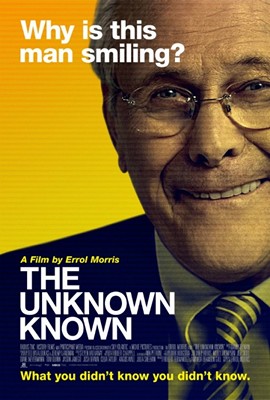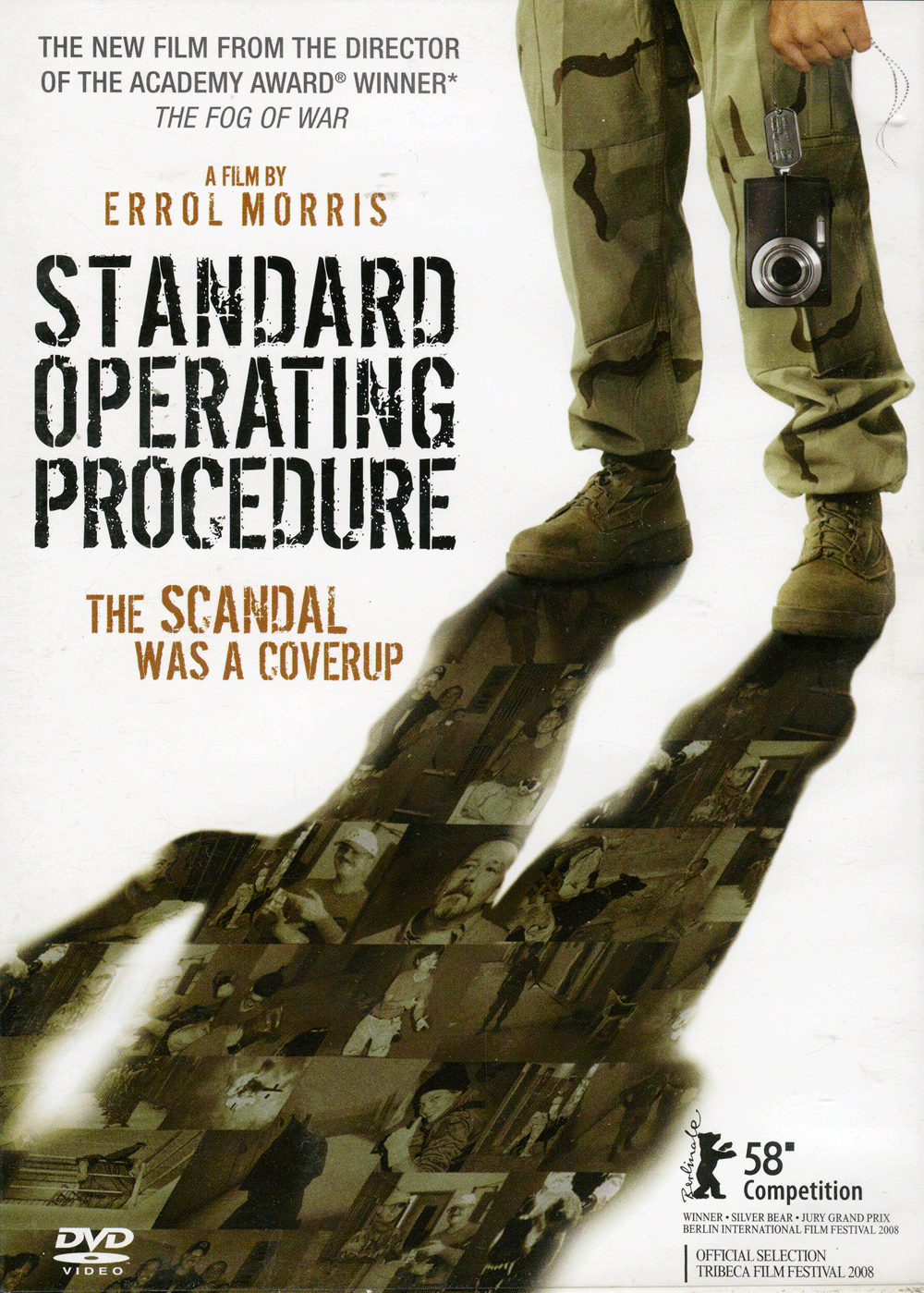Errol Morris is an Oscar winning filmmaker who has been making documentaries for over thirty-five years, and is one of the few documentarian directors that casual moviegoers can name. Born and raised in Long Island, New York, Morris studied history and philosophy in college before moving to filmmaking. The subjects of his documentary films have ranged from specific oddities to broad geopolitical topics like the Vietnam War.
Morris’s films typically rely very little on narration, instead using interviews to propel his narratives. Morris is famous for his specific way of interviewing and the later invention of his Interrotron to aid his style. The Interrotron uses teleprompters as a sort of teleconferencing two-way mirror, allowing both interviewer and interviewee to look into the camera lens while also looking at one another. The result is that the interview itself is more personal and conversational, allowing the subjects to remove some of the distance that comes from televised interviews, while also giving the illusion that the subjects are talking directly to the audience. Many of Morris’s later films use the Interrotron in their interviews.
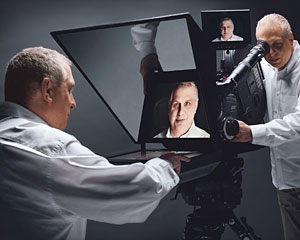
Gates of Heaven
Morris’s first documentary, 1978’s Gates of Heaven, concerns two pet cemeteries. It started a trend of Morris’s to follow everyday people with intriguingly odd professions and passions. Floyd “Mac” McClure, one of the film’s subjects, made it his lifelong mission to give pets a peaceful resting place. This combination of quirk and heart is central to several of many of Morris’s works.
Vernon, Florida
Morris followed up Gates of Heaven with Vernon, Florida, a documentary about the town of the same name and its idiosyncratic residents. Morris was originally drawn to the town because of its reputation as “Nub City”—many of its residents would actually cut off their own limbs as part of a large insurance scheme. Morris planned to document this shockingly morbid story of fraud, but the people involved threatened his life, causing him to expand his topic to the town’s other citizens.
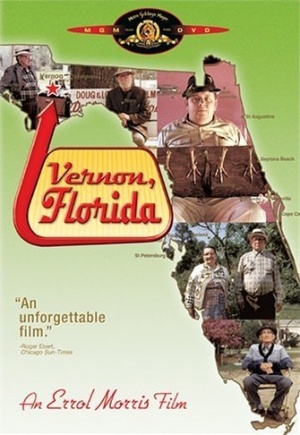
The Thin Blue Line
The Thin Blue Line is one of Morris’s best-known works, and documents the murder of a police officer in 1976, the investigation of the crime, and the man who was wrongfully imprisoned for it, Randall Dale Adams. The 1988 film uses various reenactments and interviews to propose other scenarios and famously helped lead to Adams’s exoneration. While The Thin Blue Line is held in the highest regard and often on short lists of the best all-time documentaries, it wasn’t even nominated for an Academy Award because Morris famously referred to the film as nonfiction, reflecting its narrative tropes.
A Brief History of Time
1991’s A Brief History of Time follows another person with a quirky passion, but in this case the person is famous and the passion is astrophysics—Stephen Hawking. While the title and marketing of the film may make it seem like it is an adaptation of Hawking’s famous groundbreaking science book, Morris’s documentary is more of a look at Hawking himself. In addition to many interviews with people from Hawking’s family, career and childhood, Time includes a soundtrack by Phillip Glass, who has collaborated frequently with Morris.
Fast, Cheap & Out of Control
Morris’s 1997 documentary Fast, Cheap & Out of Control centers on four people with offbeat careers: a lion tamer, a hairless mole-rat expert, an M.I.T. scientist who designed tiny robots and a topiary designer. The film is upbeat and frenetic, its cinematography and musical score both illustrating and accentuating the quirk of its subjects. The four people narrate their own stories, with Morris intertwining each other’s narration and footage to highlight their thematic similarities.
Mr. Death: The Rise and Fall of Fred A. Leuchter, Jr.
Execution technician Fred A. Leuchter, Jr. is the subject of Morris’s 1999 documentary. Morris was fascinated by what he perceived as Leuchter’s self-delusion and obliviousness to his own debauchery. Leuchter designed devices for capital punishment despite having no experience in engineering, and allegedly extorted the state into giving him work by threatening to testify on behalf of death row cases. He also supported Holocaust denier Ernst Zündel. Morris worked to discredit Leuchter’s work in the film.
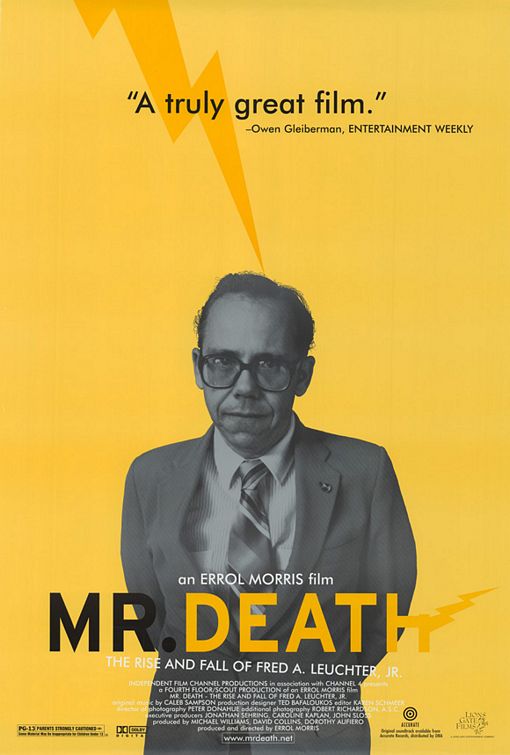
The Fog of War: Eleven Lessons from the Life of Robert S. McNamara
The Fog of War brought Morris an Academy Award for Best Documentary after its 2003 release. Scored again by Phillip Glass, Fog of War focuses on Morris’s interview with former Secretery of Defense Robert McNamara, McNamara telling in his own words the story of his early life, career at Ford, and how he ended up running the Vietnam War. The film gained great acclaim with its unique and potent perspective of Vietnam as well as its place in history within the context of the nascent War on Terror.
Standard Operating Procedure
The Fog of War started a loose trilogy of Errol Morris documentaries inspired by the War on Terror in Afghanistan and Iraq. Standard Operating Procedure is Morris’ 2008 effort, focusing on the photographs of abused prisoners at the Abu Ghraib prison and the scandal that followed after they were leaked to the public. The documentary seeks to tell a larger story, about the nature of the War itself and its relationship to the geopolitical atmosphere at large.
Tabloid
Tabloid is another film by Morris that extrapolates a specific event to comment on a larger facet of culture. The event covered by the 2008 film was the tragic kidnapping and raping of an American Mormon missionary. Morris interviewed Joyce McKinney, the alleged rapist, as well as journalists involved in a battle between two British tabloids that had turned the case into a media circus.
The Unknown Known: The Life and Times of Donald Rumsfeld
The third entry in Morris’s unofficial War trilogy, 2013’s The Unknown Known focuses on former Secretary of Defense Donald Rumsfeld. On its surface, the film seems to parrot Morris’s Oscar-winning Fog of War. Both films center on one-on-one interviews between Morris and a SecDef who presided over controversial wars. Yet while Fog of War is seen as many by Robert McNamara’s attempt to justify and apologize for mistakes he made during his tenure, The Unknown Known is more of a verbal chess match between interviewer and interviewee. Rumsfeld, famous for his carefully worded memos and vague answers to the White House Press Corps’ questions, plays that role again, dodging any inquiries Morris makes that he doesn’t want to answer. While the result is an interview where nothing much of note is actually said, the film still manages to paint a portrait of the documentary’s elusive subject.
